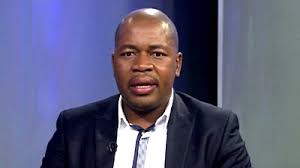There are many achievements of the ANC government under Zuma – Mzwandile Masina
 In an article reflecting on the events of the State of the Nation address, ANC secretary-general Gwede Mantashe correctly noted that the media and many other commentators overly focused on the disruptions in Parliament and paid little attention to the contents of the speech.
In an article reflecting on the events of the State of the Nation address, ANC secretary-general Gwede Mantashe correctly noted that the media and many other commentators overly focused on the disruptions in Parliament and paid little attention to the contents of the speech.
The effect was to shift public attention from the substantive matters of governance and development in the address by President Jacob Zuma to a preoccupation with side shows.
This observation can be extended to the manner in which the dominant voices in mainstream media have framed how public discourse should assess the performance of the government.
It is particularly relevant if one considers the many achievements of the ANC government under Zuma that do not feature prominently in this framing of public discourse.
The strategic advances made by the ANC government are hidden from public reflection behind the negative, vitriolic and personalised commentary that dominates national discourse.
Public conversation is less about the delivery of government on its stated objectives. It is based more on the personal hatred that some people harbour for the ANC and the President.
This robs people of the opportunity to see the great strides the Zuma administration has made.
Chief among the remarkable achievements of the ANC government under Zuma has been the production of the National Development Plan (NDP).
The NDP is a long-term plan for South Africa’s development and a vision for social reconstruction.
It is a strategic policy framework whose value lies in its capacity to forge parameters for the engagement of social forces in a long-term endgame that binds society behind a common national vision.
There are numerous areas of social policy in which South Africa has made significant progress. These range from advances in public health policy to such things as incremental allocations in social grants as part of an effective social safety net that prevents abject poverty.
The national health insurance scheme that is being rolled out has led to remarkable progress being made in the revamping of public health facilities in the trial regions.
The long-term imprint of the scheme will be the availability of modern health facilities with advanced technological capabilities in historically underdeveloped regions of our country.
The full implementation of the national health insurance scheme will radically restructure the sector, providing access to health care for the vast majority of South Africans who cannot afford medical aid.
Similarly, over the years the ANC government has rolled out progressive reforms in the education sector. The basic education situation is improving, with indications of stability and coherence in planning.
Among these progressive reforms has been the conversion of the National Student Financial Aid Scheme into a bursary for successful final-year students.
In the further education and training sector, all needy students are granted full bursary allocations that are a variation of free education.
The Zuma administration has succeeded in the founding of the first post-1994 universities through the building of the Sol Plaatjie University, the University of Mpumalanga and the Sefako Makgatho University for Health Sciences.
Of course, much more needs to be done in the transformation of the education sector, but these achievements have laid a solid foundation for the future.
The global financial crisis wreaked havoc in many economies of the global north. Continental Europe was hardest hit by the financial meltdown and major bickering continues about how the euro zone can extricate itself from a position where a second collapse seems imminent.
How did South Africa sidestep the effects of economic collapse in the euro zone, given its high trade relations then?
The Zuma administration consolidated an effective fiscal package that halted a windfall shedding of jobs and managed to place the manufacturing sector on the path of positive growth again.
The manufacturing competition enhancement programme is among the strategic fiscal cushions that prevented that possible windfall in most of our manufacturing industries and has initiated positive growth trends.
The automotive industry greatly benefited from the fiscal support package under the automotives investment scheme and has entered positive growth territory.
Public spending in public infrastructure and other social assets has progressively sustained industries and created employment opportunities.
Without these interventions, we could have been far worse off than we are.
Overall, this administration has achieved greater economic stability in the face of the global economic volatility of the past seven years.
Despite the hardship the global economy has experienced, South Africa has sidestepped a possible rollback of the progressive social safety net interventions and managed to roll out more delivery in crucial areas of social capital.
In my next offering, I will draw the reader’s attention to the major impact that the consolidated infrastructure plan has had on our economy.
It is crucial to highlight all these progressive interventions to put the brakes on the ultra-pessimism bordering on Afropessimism that dominates the mainstream media.
Of course, all these things have been buried beneath the heap of malicious commentary and hostility directed at the ANC, the government and the person of President Zuma.
When rational discourse is established and facts are given primacy, the commendable legacy of President Zuma will speak for itself beyond what the hogwash commentary and opposition opportunism make of it.
A culture of a balanced contestation of facts has to be engendered in public discourse for the sake of a positive climate of political criticism and contestation.
By Mzwandile Masina

